WINGS has been adapted globally, including in Kyrgyzstan, where a virtual conference was held with experts in gender-based violence prevention from 18 countries.
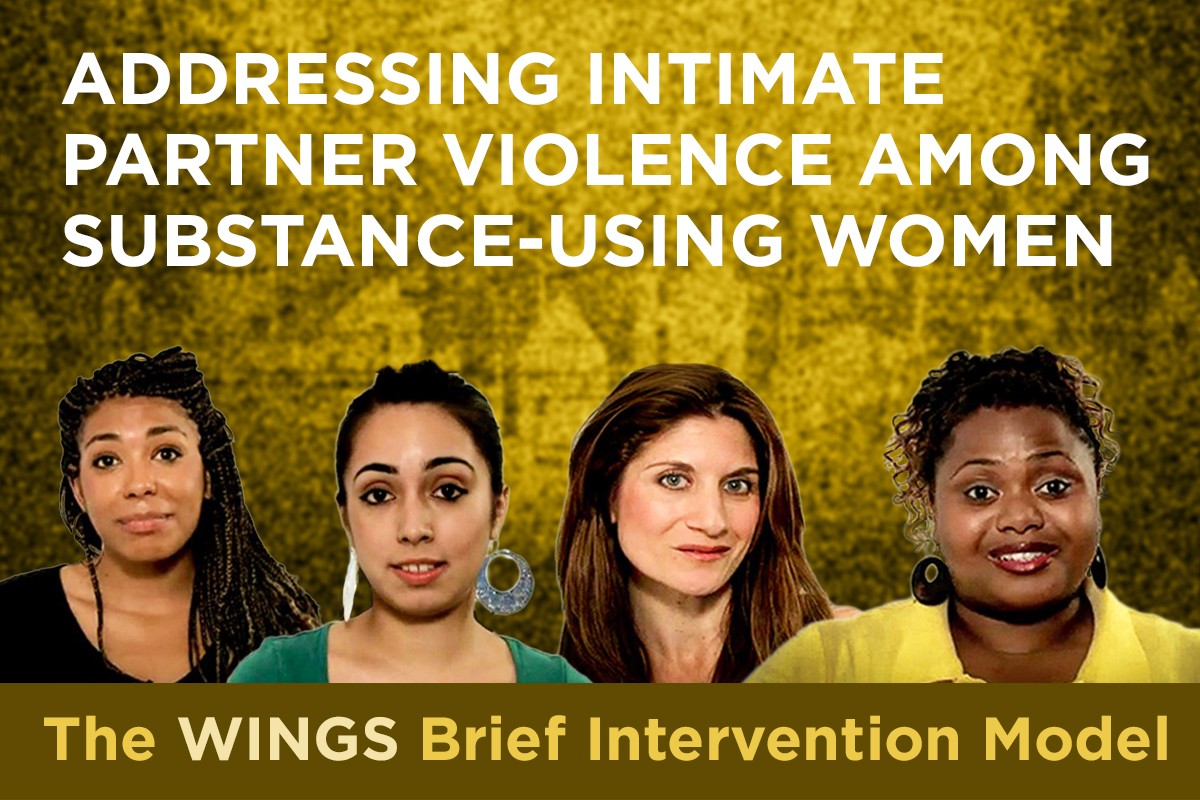
In Kyrgyzstan, as well as in other countries of Central Asia and all over the world, violence against women and girls remains a serious social challenge. Only 6% of women at risk who need intimate partner violence prevention services -- vulnerable populations such as women who use drugs or engage in sex work -- are receiving it. Failure to address this violence increases the likelihood of continued use of drugs and a host of other negative physical and mental health consequences.
To address this gap, the Social Intervention Group launched “Women Initiating New Goals for Safety,” or WINGS based on extensive research in 2011. WINGS is a highly adaptable evidence-based screening, brief intervention, and referral to treatment service tool designed to identify and address intimate-partner and gender-based violence among women at risk. The intervention enables participating women to develop safety planning strategies and strengthen their social support networks.
The COVID-19 pandemic has intensified domestic and gender-based violence globally, including Kyrgyzstan, where there was a 65% increase of gender-based violence incidents for the same period. Of these, 95% of the victims are women between the ages of 21 and 50, and four women were murdered.
WINGS in a Global Context
WINGS has been translated into 8 languages and is being implemented in 6 countries in a wide range of settings including harm reduction programs, domestic violence programs, substance abuse treatment, primary care clinics and community-based organizations. The Social Intervention Group’s local partner, Danil Nikitin from the Global Research Institute (GLORI Foundation) has led the WINGS project in Kyrgyzstan since 2013.
Now, an innovative intervention model in Kyrgyzstan combined the strengths of both WINGS and another evidence-based model: Sunflower Centres. Sunflower Centres are a one-stop service for gender-based violence survivors run by the Republic of Korea. The Centres are housed in hospitals and provide integrated support including medical, counseling, legal and police-investigation services.
This progressive new hybrid model was possible due to the financial and technical support of the United Nations Development Programme Seoul Policy Center and the Global Research Institute (GLORI) Foundation, as well as a collaboration with the Crisis Centers Association of Kyrgyzstan.
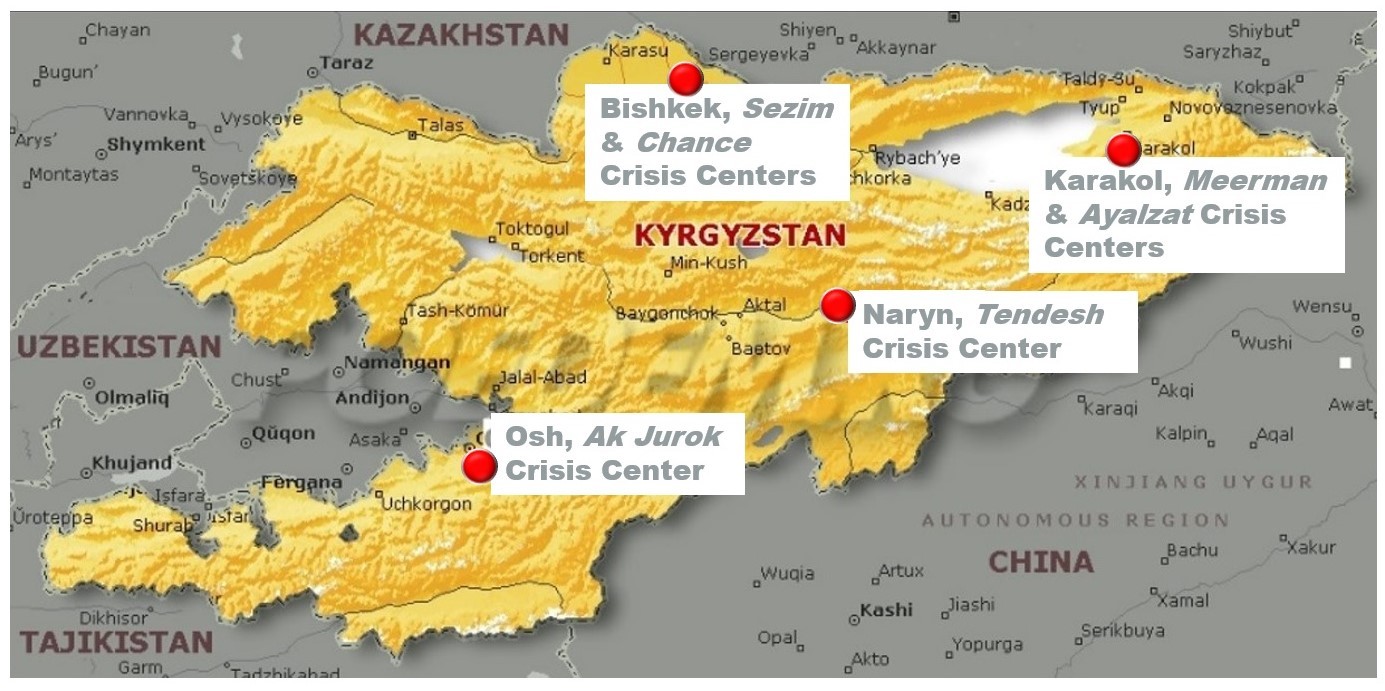
WINGS SUNFLOWER
In addition to support for woman who have experienced gender-based violence, the aforementioned Sunflower Centres in the Republic of Korea also provide targeted support for women who are underage or with disabilities. The Centres focus on preventing and identifying cases of violence and promoting gender equality, protecting their rights, and preventing secondary victimization.
The WINGS SUNFLOWER integrated model was adapted by GLORI and the Kyrgyz Crisis Centers Association, working collaboratively with six community-based Crisis Centers in Kyrgyzstan. In its first year, WINGS SUNFLOWER provided gender-based violence services to 100 women.
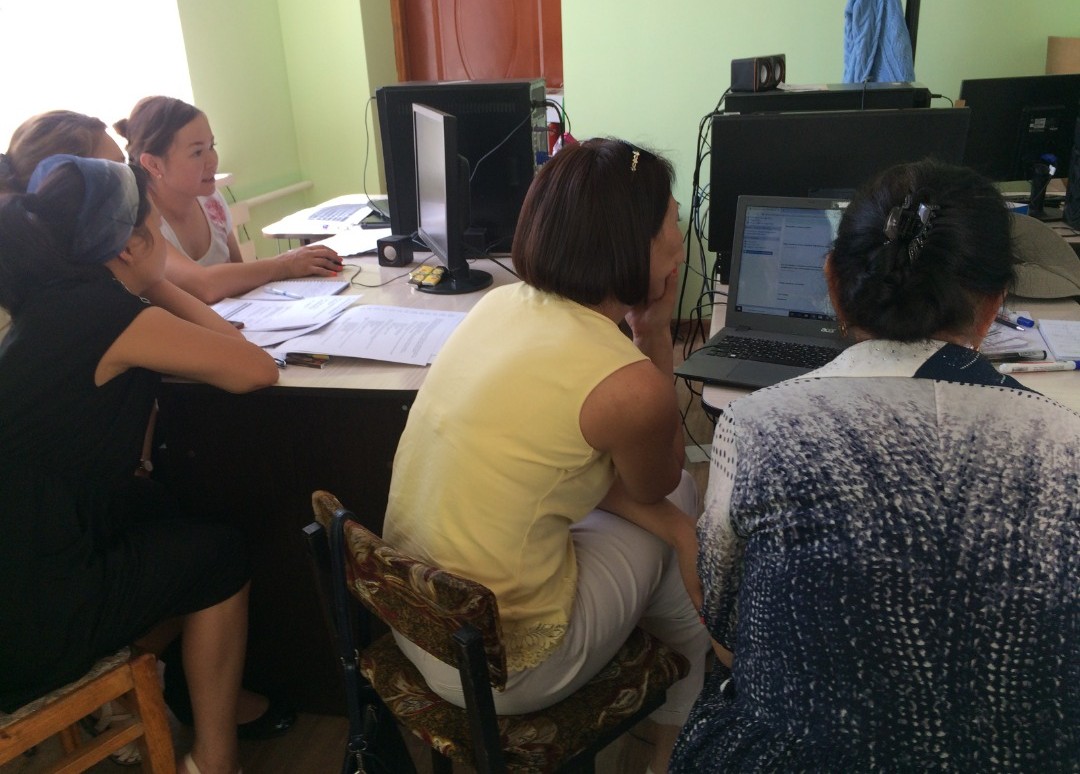
The services provided take into account that women are at a risk of violence from any socio-economic status, but many of the women who receive services earn a below-average income. Thus, the issues of household budget sustainability remain very important to them. These women apply for help to the Crisis Centers after they experience gender-based violence or intimate partner or domestic violence.
Very often they experience psychological abuse in the form of insults and threats. Other discovered forms of violence included unlawful detention, preventing them from seeing family, and forcing women eat by themselves, away from family. Economic violence is widely observed in the form of suppression of women by limiting her financial resources or by abusing their trust and building debts in their names.
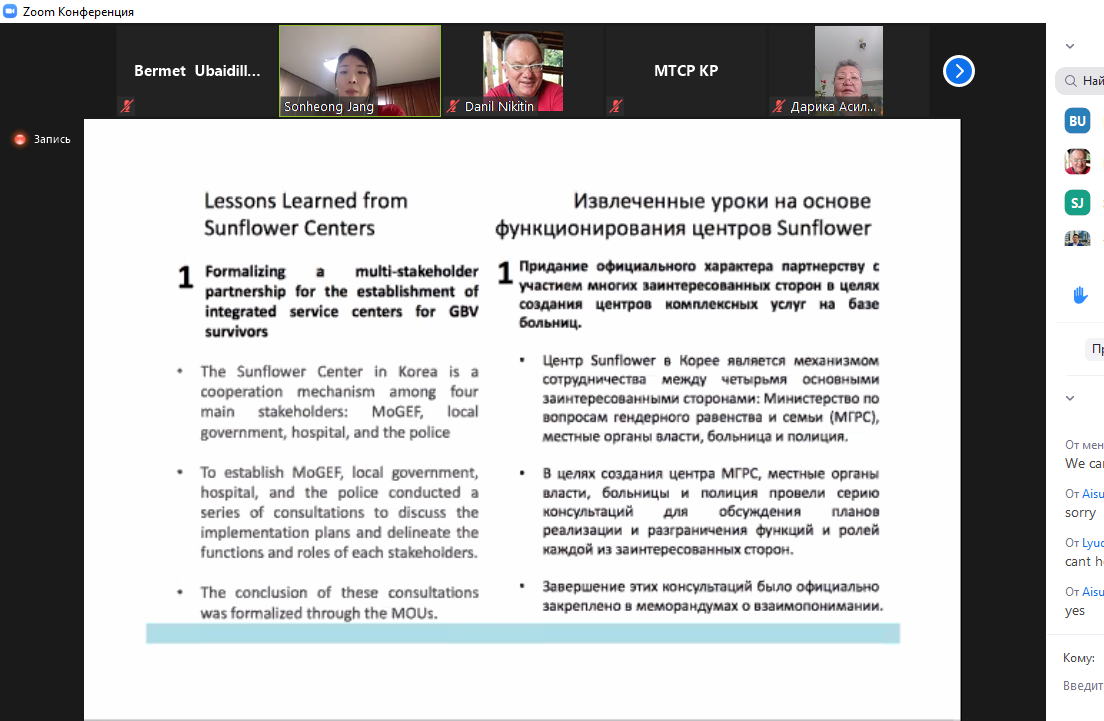
WINGS SUNFLOWER Conference
To both demonstrate the power of the integrated WINGS SUNFLOWER model to address this violence, and share expertise in gender-based violence from social workers and civil activists from 18 countries, the United Nations Development Programme (UNDP) in the Kyrgyz Republic and GLORI hosted a global Zoom conference on May 20th called the “WINGS SUNFLOWER Intervention Experience.”
Experts at the conference also presented findings from the first year of the gender-based violence prevention intervention in the Crisis Centers, and steps on how to integrate the model while planning, designing and implementing the programs aimed at gender-based violence prevention.
SIG’s Co-Director Dr Louisa Gilbert provided overview of “Screening, Brief Intervention, and Referral to Treatment,” or SBIRT model of WINGS, shared future directions of the model dissemination, detailed how COVID is threatening to women experiencing intimate partner and gender-based violence, and shared how WINGS Model may advance a coordinated community response to this violence.
Other presenters included:
- Ms. Sonheong Jang of the UNDP Seoul Policy Center told about challenges experienced in supporting GBV survivors, provided overview of Sunflower Centers, told about key strengths and benefits of integrated service model, and about lessons learned from Korea’s integrated service centers.
- Ms. Tolkun Tiulekova of the Kyrgyz Crisis Centers Association described the workflow of the project "Integration of an Intervention Model on Prevention of Gender-based Violence in Crisis Centers’ Activities in the Kyrgyz Republic".
- Mr. Danil Nikitin of the GLORI Foundation shared the WINGS SUNFLOWER findings and recommendations both in Kyrgyzstan and internationally.
- Ms. Harjyot Khosa of the India HIV / AIDS Alliance told about the Project WINGS being implemented in India by Nirvana Foundation (Manipur), Ganga Social Foundation (New Delhi) and Sahara Aalhad (Maharashtra).
- Ms. Velta Parkhomenko and Ms. Alina Sarnatskaya of Club Eney (Kyiv, Ukraine) shared findings of the 2-year experience of successful implementation of the WINGS intervention for preventing violence in women who uses drugs and sex workers that was done with the support of the Renaissance Foundation.
- Dr. Assel Terlikbaeva of the Global Health Research Center of Central Asia shared their team’s findings on the correlation between sexual violence and overdose among women at-risk for HIV in Kazakhstan.
- Ms. Natalya Volkova of the Anti-AIDS Foundation “Steps” and Ms. Shahnoze Yusupova of the Regional Expert Group on Migrants’ Health shared their experience in designing programs and providing gender-based violence prevention services to migrant sex workers and HIV positive women in Russia.
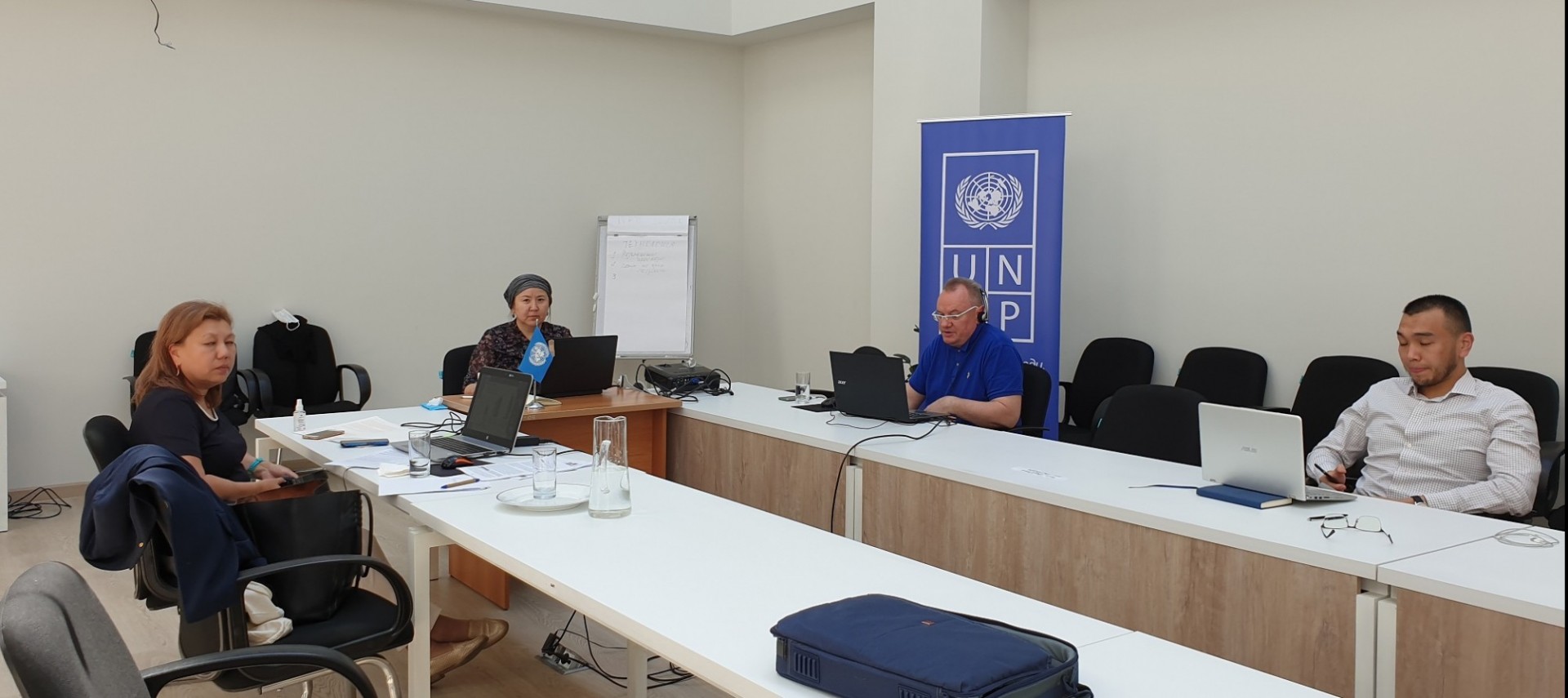
In the final remarks, Ms. Aisuluu Kamchybekova of the Gender Programme in UNDP of the Kyrgyz Republic emphasized the importance of developing, implementing and maintaining regional gender-based violence prevention efforts. She also shared the ongoing Spotlight Initiative -- a UN initiative focused on eliminating all forms of violence against women and girls -- as a relevant framework for further development of the WINGS SUNFLOWER model.
Subject to funding availability, next steps may include translating the intervention materials into other languages of Central Asian countries and scaling-up the intervention through smartphone apps. The model adaptation would also benefit adaptation to address violence for migrants and displaced people and their family members. Adapations will be made collaboratively with the Regional Expert Group on Migration and Health in Eastern Europe and Central Asia and partners in Kyrgyzstan, Kazakhstan, Russia, Tajikistan, Ukraine and Uzbekistan.
Learn more

The Global Research Institute (GLORI) Foundation and Crisis Centers Association would like to express appreciation to UNDP in the Kyrgyz Republic and Ms Bermet Ubaidillaeva of the UNDP Gender Program for the phenomenal support and provided opportunity to apply this project. We are very grateful to Ms Roza Begmatova who heads the Gender Department at the Ministry of Labor and Social Development of the Kyrgyz Republic, and Ms Sonheong Jang of the UNDP Seoul Policy Center for their significant support throughout the project.
Special thanks to the international experts who shared their rich practical experience in the field of gender-based violence, Dr Louisa Gilbert, the Co-Director of the Columbia University Social Intervention Group, for her methodological support throughout the project, Ms. Ariel Richer for her on-going help with data analysis, and Ms. Eleni Vlachos, the SIG Communications & Marketing Manager, for the informational support to the project.
Implementation of the project would have been impossible without the participation and partnerships of local non-government community-based organizations and Crisis Centers in Osh (Ak Jurok), Bishkek (Chance and Sezim), Karakol (Ayalzat and Meerman), and Naryn (Tendesh), and we very much appreciate their commitment to providing excellent services to women who need their help.
We received significant support from Dr Elmira Asanbaeva, docent of the Department of Psychiatry, Psychotherapy and Narcology at Kyrgyz State Medical Academy, and very much appreciate it.
We are grateful to all project beneficiaries for their responsiveness and willingness to participate in the project. Without their commitment and desire, the results achieved would have been impossible.
